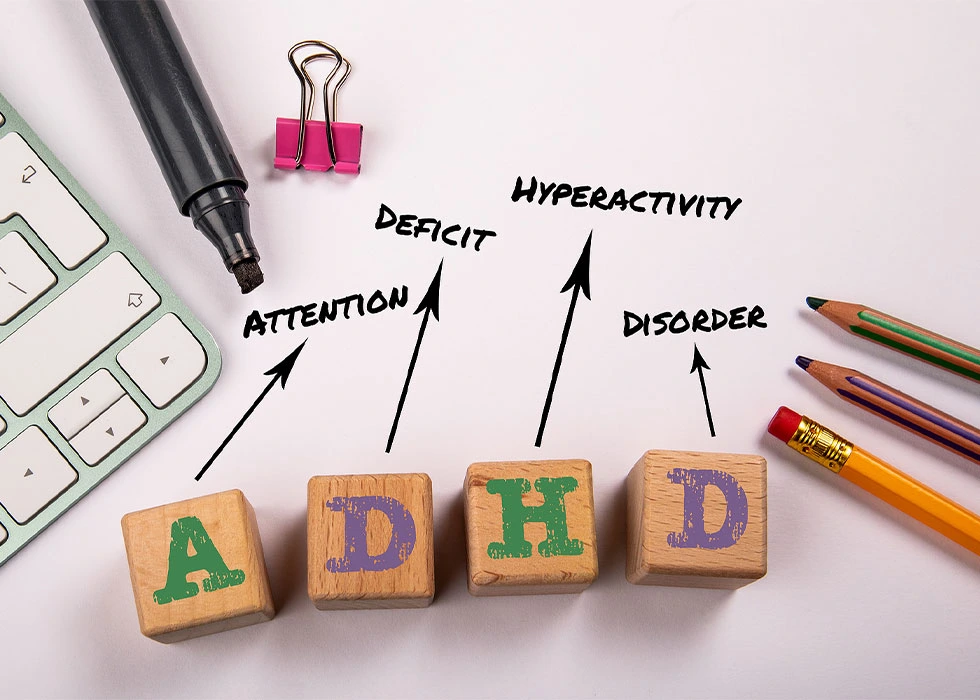
Adult ADHD: Symptoms, Causes, Treatment & Living With It
- August 15, 2025
- 1 Like
- 79 Views
- 0 Comments
Adult attention-deficit/hyperactivity disorder (ADHD) is a mental health condition that affects focus, organization, and self-control. While ADHD is often associated with children, its symptoms continue into adulthood for many people. For some, it is not recognized until later in life, when challenges at work, in relationships, or in managing daily tasks become harder to explain.
Unlike children, adults may show less obvious hyperactivity. Instead, symptoms often appear as restlessness, disorganization, or difficulty concentrating. Recognizing and treating ADHD can help improve work performance, relationships, and overall well-being.
Symptoms of Adult ADHD
The symptoms of ADHD can vary in intensity, but they often disrupt daily functioning. Adults may struggle with focus, time management, or following through on responsibilities. Some experience strong impulsivity, leading to decisions they later regret, while others describe constant restlessness or mental “noise.”
Common signs include disorganization, procrastination, frequent mood changes, difficulty multitasking, poor planning, low frustration tolerance, and stress management problems. While almost everyone experiences these occasionally, ADHD is diagnosed when symptoms are persistent, begin in childhood, and significantly impact life in more than one area, such as work and personal relationships.
Causes and Risk Factors
The exact cause of ADHD is still not fully understood. Research shows that genetics play a major role, as the condition often runs in families. Environmental influences during pregnancy or childhood, such as exposure to toxins or premature birth, may also increase the risk. Some studies suggest that changes in brain structure and activity linked to attention and impulse control may contribute as well.
Adults are more likely to develop ADHD if they have close relatives with the disorder, were exposed to harmful substances in early development, or experienced complications before or shortly after birth.
Complications and Coexisting Conditions
Living with untreated ADHD can lead to a range of challenges. Many adults face repeated difficulties at work or school, unstable relationships, and financial struggles. Impulsivity may cause problems with driving, frequent accidents, or trouble with the law. ADHD is also linked with a higher risk of substance misuse, poor self-image, and even attempted suicide.
It is common for adults with ADHD to also experience depression, anxiety, or mood disorders. These conditions can intensify ADHD symptoms and make diagnosis more complicated. Understanding the overlap between ADHD and other mental health issues is important for effective treatment.
Diagnosis
Diagnosing ADHD in adults is not straightforward. Since many symptoms overlap with other conditions, such as depression, anxiety, or thyroid problems, doctors must carefully evaluate history and behavior. A key part of diagnosis is confirming that symptoms began in childhood and have continued into adult life.
Health professionals may ask about academic history, relationships, and patterns of behavior. They may also screen for other mental health conditions to avoid misdiagnosis. Because ADHD symptoms can be masked or dismissed, seeking evaluation from a specialist with experience in adult ADHD is recommended.
Treatment Options
Although ADHD cannot be cured, treatment can help manage symptoms and improve daily functioning. Most adults benefit from a combination of approaches.
- Medication is often prescribed to regulate brain activity. Stimulants such as methylphenidate or amphetamine are the most common, while non-stimulant options like atomoxetine or guanfacine may be used when stimulants are unsuitable.
- Psychological therapies, especially cognitive behavioral therapy (CBT), are effective in helping adults manage negative thought patterns, improve organization, and develop coping strategies. ADHD coaching can also provide practical guidance for time management and goal setting.
- Lifestyle adjustments play an important role. Regular exercise, adequate sleep, and healthy nutrition can help stabilize mood and energy. Stress-reduction techniques, such as mindfulness and relaxation exercises, may also ease symptoms.
A tailored plan, designed with professional guidance, often combines medication, therapy, and lifestyle changes for the best outcome.
Living With ADHD
Managing ADHD as an adult often means learning new strategies to cope with daily challenges. Keeping structured routines, using planners and reminders, breaking tasks into smaller steps, and working in distraction-free environments can make life more manageable.
Support from family, friends, or peer groups can also reduce frustration and feelings of isolation. Being open about ADHD with trusted people can help them understand your needs and provide encouragement. Over time, many adults find that with the right support, ADHD becomes a manageable part of their life rather than a barrier.
Outlook
With proper treatment, adults with ADHD can live fulfilling, successful lives. While challenges remain, therapy, medication, and lifestyle changes can reduce symptoms and help individuals reach their potential. Without treatment, ADHD can lead to ongoing problems in relationships, careers, and emotional health, but with the right approach, many people experience meaningful improvement and stability.


Leave Your Comment